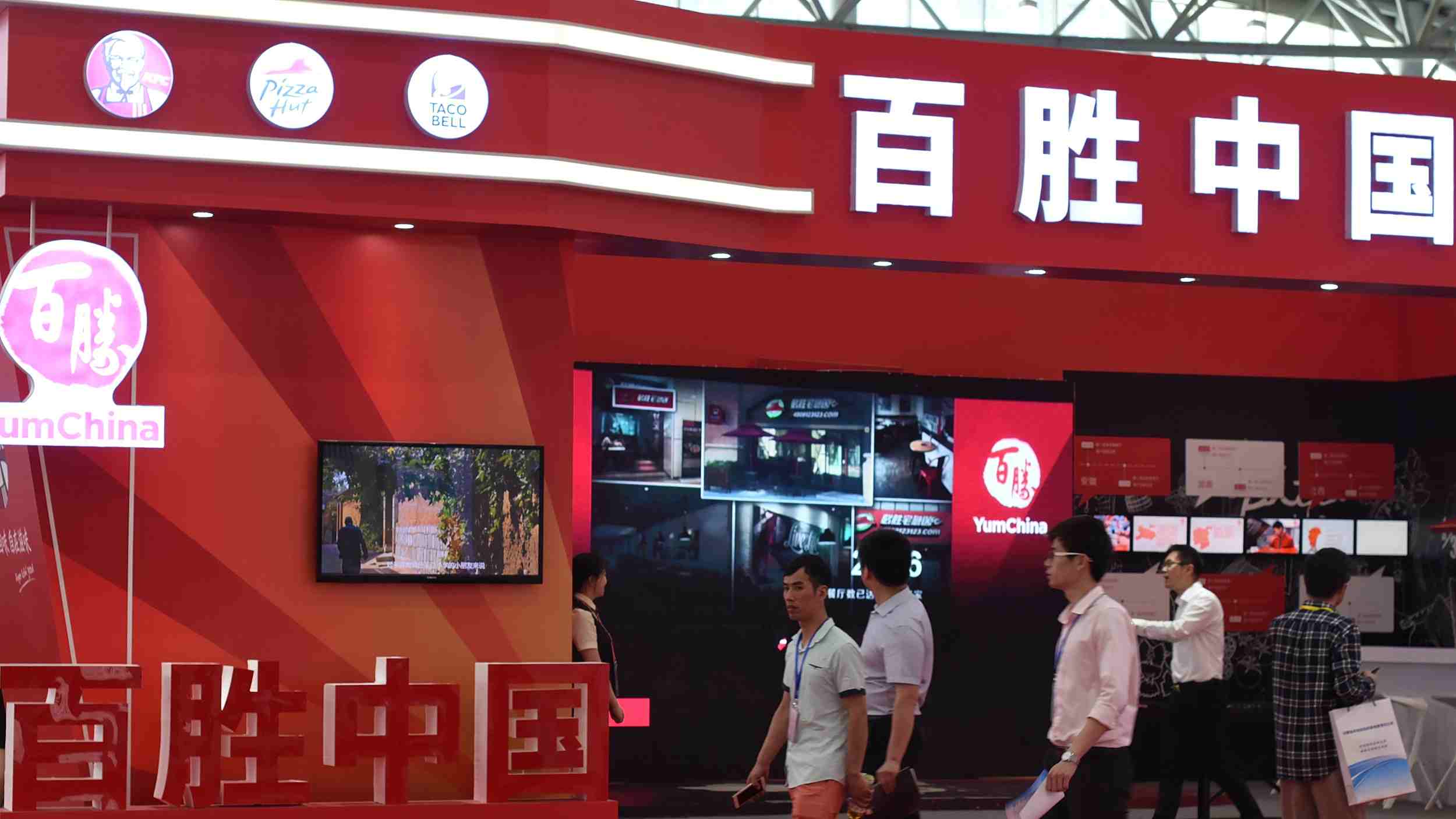
Business
18:14, 07-Nov-2018
American states, cities lead participation at CIIE
Updated
18:02, 10-Nov-2018
By CGTN's Jessica Stone

Even in Shanghai, when Kentucky's governor arrives at a Kentucky Fried Chicken restaurant – he is greeted like an old friend. Governor Matt Bevin wants to see the future of food retail.
On Tuesday, Bevin observed how customers order food via facial recognition in Yum China restaurants. He toured four Yum Brands restaurants in Shanghai.
"We only started the journey of data delivery and digital a few years ago, and we could not imagine how fast our customers embraced it," Yum China CEO Joey Wat told Bevin.
"People are quick to adapt,” said Bevin. "It's easier for young people. It's the old people like me that have trouble,” he joked.
For Yum China, the parent company of KFC, the biometric ordering system was part of the company's efforts to tailor the restaurant experience to the customer.
"We can be flexible. We adapt to respect the local culture and provide what the local customer wants. We need innovation. We see the future of the restaurant industry. And we embrace it aggressively," explained Wat.
Already Yum China has locations in 1,200 cities in China. Now, they're aiming for the next 1,000 cities.

Yum China. /VCG Photo
Yum China. /VCG Photo
Building that type of connection is what brought Gino Pini of California's Trefethen Vineyard to China's International Import Expo (CIIE). It was at this event that he signed a letter of intent with Chengbiao Xue, chairman of the Shanghai Jucheng Supply Chain Management Group.
"You always need a vehicle to get in," said Pini. "You always need a relationship. We have great vehicles, and now we have a wonderful relationship."
"We've gotten a warm reception here, we're pretty excited about that," added Keith Carson, Alameda County, California Supervisor.
China's middle-class consumers don't just live in the major cities on the coasts like Beijing and Shanghai, they live a train ride away, inside China. There are millions of people who now represent an untapped market ripe for foreign investment.
"Some of our smaller companies want to do business with the smaller cities,” said Horacio Licon of the Greater Houston Partnership. “It's less intimidating."
GHP brought ten companies from the Texas city, some of them employ just five people.
But for the state of California – the only American government entity here – having a presence at the expo was both about business and sending a message to Washington.
"We disagree with the tariffs. We don't like trade wars. That's why we are here," said Del Christensen of the Bay Area Council, California's trade office.

SITEMAP
Copyright © 2018 CGTN. Beijing ICP prepared NO.16065310-3
Copyright © 2018 CGTN. Beijing ICP prepared NO.16065310-3